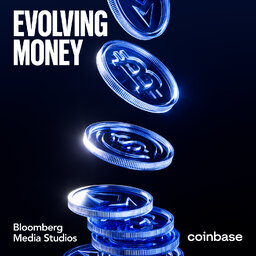Surveillance: Tech Fatigue with Kaiser
Stuart Kaiser, Citi Head of US Equity Trading Strategy, says we're seeing some "fatigue" in tech buying. Gita Gopinath, IMF First Deputy Managing Director, says a number of factors could be "muting the effect of monetary policy transmission," and as those effects decline, "we can start seeing more of a slowing in activity." Kit Juckes, Societe Generale Chief FX Strategist, sees weakness ahead for the dollar. Cameron Dawson, NewEdge Wealth CIO, believes in the 60/40 portfolio plus alternatives. David Rubenstein, Carlyle Group Co-Chairman and Co-Founder, discusses his interview with Afsaneh Beschloss, RockCreek Founder & CEO.Get the Bloomberg Surveillance newsletter, delivered every weekday. Sign up now: https://www.bloomberg.com/account/newsletters/surveillance
In 1 playlist(s)
Bloomberg Surveillance
Listen for the latest in finance, economics and investment. Jonathan Ferro, Lisa Abramowicz and An…Social links
Follow podcast
Recent clips

Bloomberg Surveillance TV: February 23th, 2026
20:31

Trump Tariff Defeat Throws Trade Deals Into Doubt
33:54

Evolving Money: Blue Chip Meets Blockchain (Sponsored Content)
16:48
 Bloomberg Surveillance
Bloomberg Surveillance